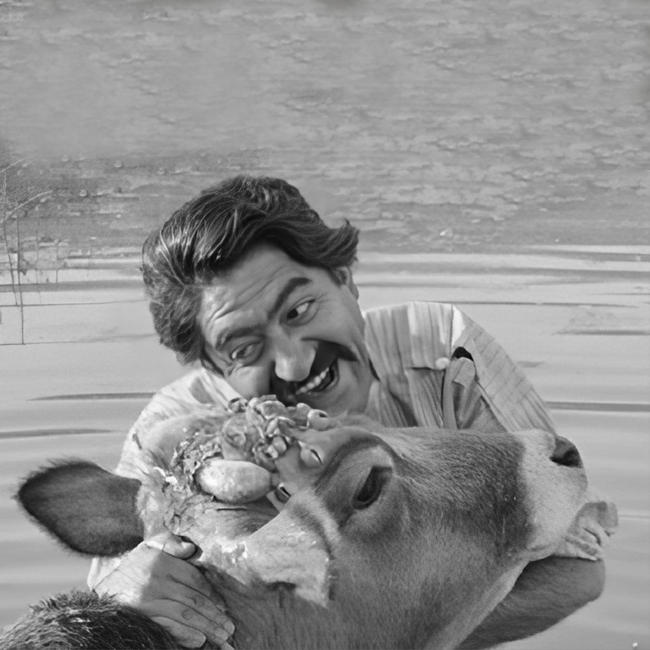

Released in 1969, Gāv (The Cow) is an Iranian drama directed by Dāryūsh Mihrjūyi, a pioneer of Iranian New Wave cinema. The screenplay of this movie is an adaptation of a short story of the same title, the fourth in a collection titled Azāʹdārān-i Bayal and written by Ghulām Ḥusayn Sāʿidī in 1964. The focus of Gāv is on a pregnant cow that is cared for by a local farmer, Hassan, played by Izzat Allāh Intizāmī. Hasan’s cow dies and the former, who has a pathological attachment to his cow, goes mad. He adopts her lifestyle and behavior and gradually transforms into a cow.
He lives a life adjacent to his cow’s, accompanying her to graze and taking on a fatherly role as she reaches her due date, since he and his wife, played by Mahīn Shahābī, have no children shown on screen. However, when Hasan travels to Tehran, the cow dies and the villagers conspire to conceal the death of the animal from Hasan by burying the cow in the old village well, telling Hassan that his cow simply wandered off. Hassan does not believe this and slowly descends into madness, progressively being transformed into a cow, taking on her lifestyle and attitude. Gāv features influences from Persian poetry and the Italian neorealist movement and contemporary social themes of oppression and impoverishment, leading it to be widely considered as the first film of Iranian New Wave cinema. The film garnered numerous awards, including the FIPRESCI Prize at the 32nd Venice International Film Festival and Best Screenplay at the 1970 Sipās Film Festival. After the Islamic Revolution in 1979, arts such as cinema faced the risk of being stopped due to “Sharīʻah” (Islamic regulatory) restrictions, but Ayatollah Khomeini (the leader of the Revolution), who had not seen a film until then, agreed with the continuation of the activities of filmmakers upon seeing the film and being satisfied with its story.
